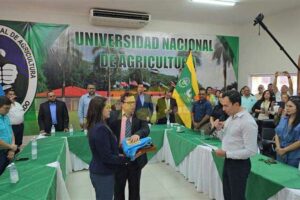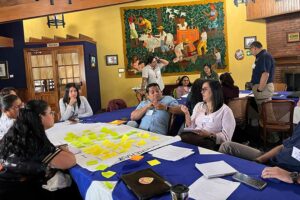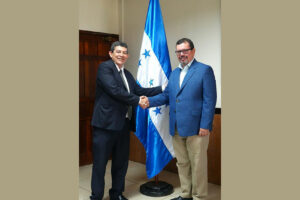Low-emission livestock farming with financial backing
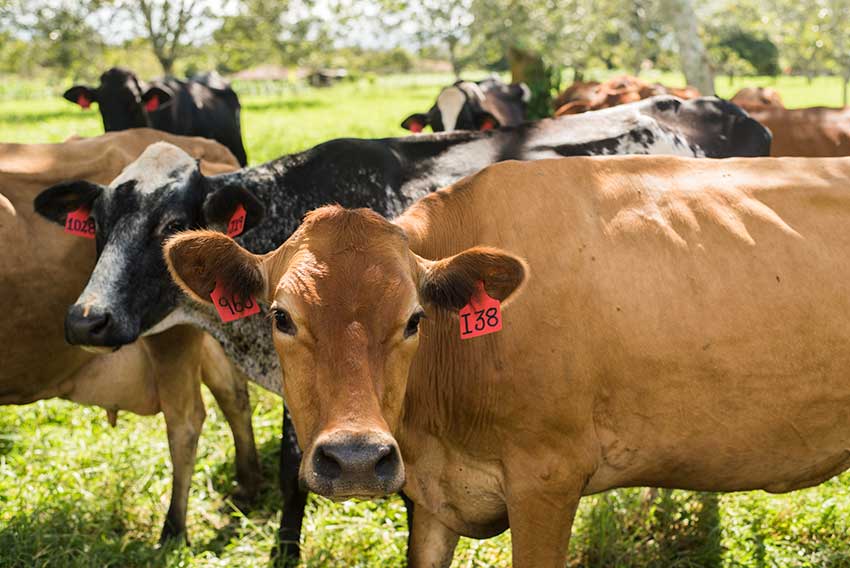
- Honduras launches innovative technical-financial program to transform the livestock sector towards a low-carbon economy
With the goal of transforming the livestock sector into a low-carbon model, the technical assistance program and financial mechanism of the project Transforming the Honduran Livestock Sector Towards a Low-Carbon Economy (MAF-Ganadería-HN) was launched on July 16 in Tegucigalpa, Honduras.
The project, led by the Secretariat of Natural Resources and Environment (SERNA) and the Secretariat of Agriculture and Livestock (SAG), with technical support from CATIE (Tropical Agricultural Research and Higher Education Center) and funding from the Mitigation Action Facility, seeks to strengthen resilient, profitable, and climate-responsible livestock farming.
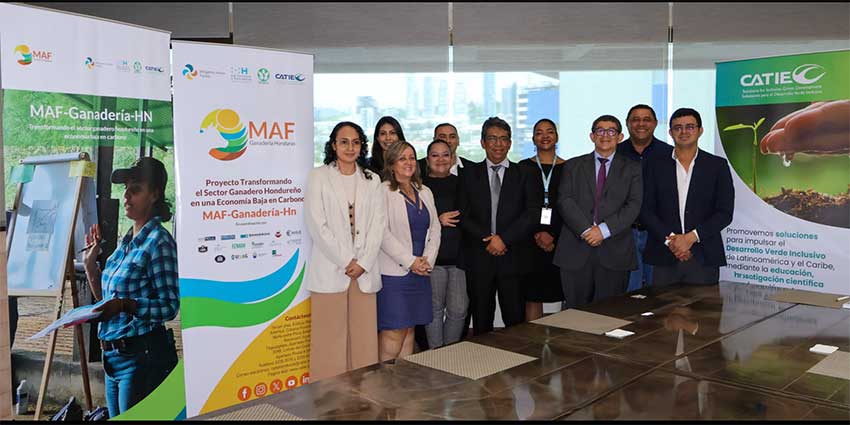
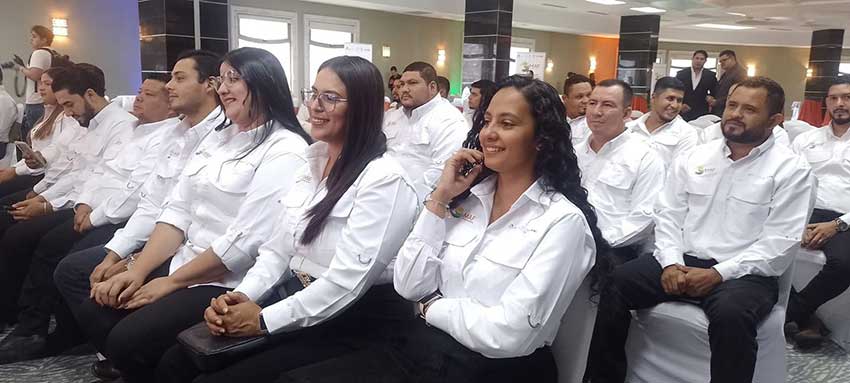
During the event, which brought together government representatives, international organizations, and livestock producers, the new climate financial mechanism was presented. It is designed to facilitate access to credit for small and medium-sized livestock producers. This instrument, supported by BANHPROVI, will enable investments in sustainable technologies such as renewable energy, manure management, live fencing, and water harvesting, reducing risks through strategic partnerships.
The work of the technical team was also highlighted, which will provide field assistance through Farmer Field Schools (ECA), promoting participatory training and strengthening local capacities. Recognition was given to 25 professionals who contributed to the development of the ECA training curriculum and the creation of support materials for technical staff.
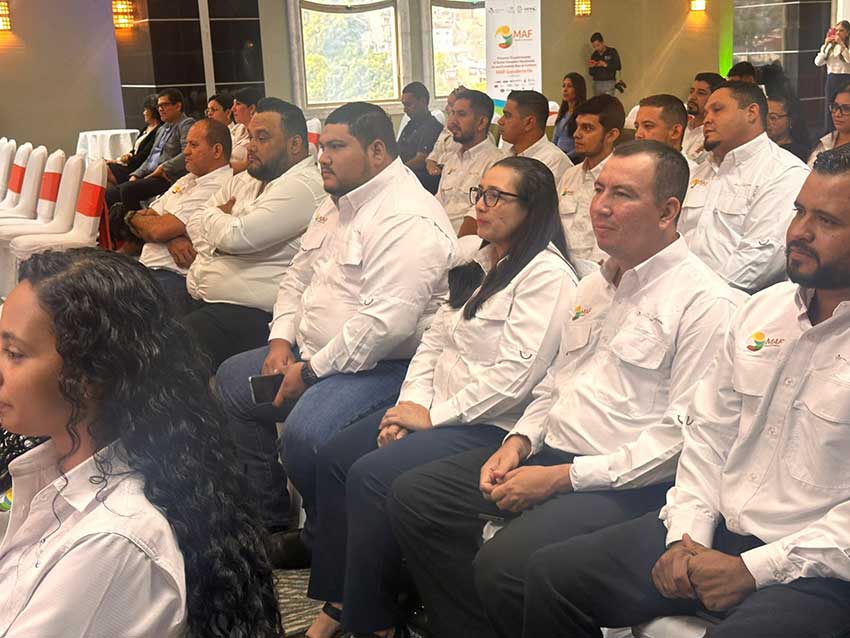
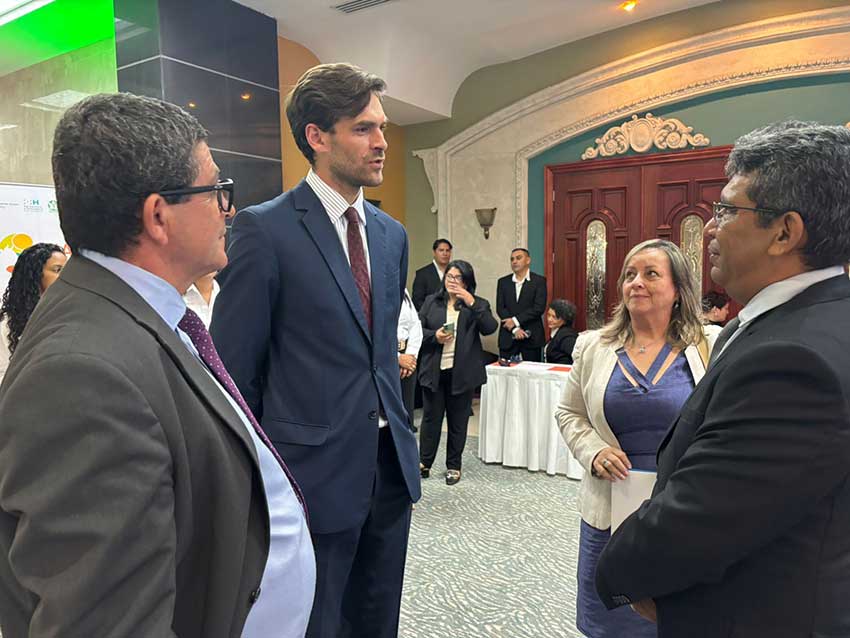
The event coincided with a meeting of the project’s steering committee, composed of representatives from BANHPROVI, SAG, the Secretariat of Finance (SEFIN), SERNA, and CATIE, during which progress to date and planning for the second half of 2025 were reviewed.
Among the project’s achievements are more than 65 active ECAs, 22 trained trainers and technical staff benefiting over 1,300 families; the creation of a national standard for sustainable livestock production; and the development of a Monitoring, Reporting, and Verification (MRV) system with an integrative and inclusive approach involving national sector organizations.
With this comprehensive strategy, Honduras moves forward towards a low-carbon rural economy, strengthening its leadership in sustainability, competitiveness, and inclusive development in the livestock sector.
Written by / For more information:
Gina Samanti Puerto Morazán
Communicator
Communicator
Project Transforming the Honduran Livestock Sector Towards a Low-Carbon Economy (MAF-Ganadería-HN)
CATIE
gina.puerto@catie.ac.cr

